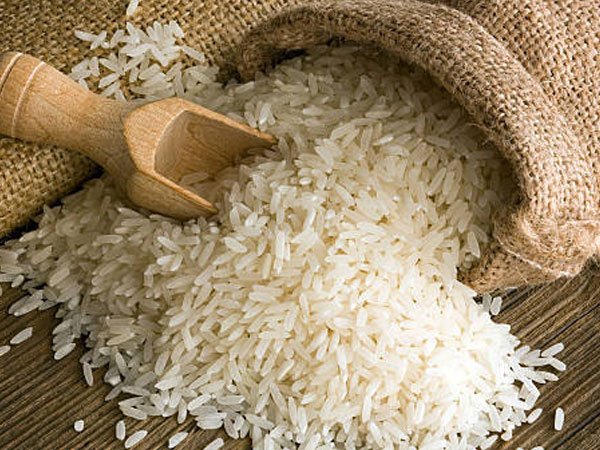 The government is urgently importing 4 lakh tonnes of rice to maintain food stocks and boost open market sales (OMS), as fresh paddy will not arrive before December while floods have hit the north.
The government is urgently importing 4 lakh tonnes of rice to maintain food stocks and boost open market sales (OMS), as fresh paddy will not arrive before December while floods have hit the north.
Food ministry officials said OMS rice distribution has been reduced by around 50,000 tonnes, while finance officials said the tender process has been shortened by 27 days to expedite imports.
According to public procurement regulations, open international tenders must remain open for 42 days after being advertised in newspapers. However, the Advisers Council Committee on Economic Affairs recently approved a proposal to reduce this period to 15 days.
In its proposal, the food ministry said the emergency import was essential to keep the government's food distribution system running, stabilise rice prices for consumers, and ensure food security.
Food Secretary Md Masudul Hasan told The Business Standard that 13.5 lakh tonnes are considered a safe stock level, which the government aims to maintain.
"No new paddy will be available before December and heavy rains have flooded low-lying areas in the northern region," he said. "To prevent any hardship, the government is importing rice."
Food ministry officials said that under the urgent import plan for 4 lakh tonnes, tenders for 50,000 tonnes from India have been completed.
M/S Bagadiya Brothers Private Limited of Raipur will supply rice at $359.77 per tonne. Another tender for 50,000 tonnes has been floated, while tenders for the remaining 3 lakh tonnes are being processed.
The food secretary said the emergency imports will be completed by November, though the entire 4 lakh tonnes may not be needed.
The Food Planning and Monitoring Committee (FPMC) will meet in mid-November to decide when to begin domestic procurement from the Aman harvest, he said.
Reduced OMS distribution
Food Secretary Masudul said 5 lakh new families have been added to the Food-Friendly Programme. The number of Trading Corporation of Bangladesh cardholders has also increased.
In addition, OMS operations have been expanded to 495 upazilas, requiring the government to boost rice supplies. He noted that prices of rice and other essentials historically rise between July and September, prompting the government to import rice to stabilise the market.
According to food ministry officials, under the Food-Friendly Programme, Vulnerable Group Development (VGD), Gratuitous Relief (GR), and Vulnerable Group Feeding (VGF) programmes, the ministry provides rice and wheat at subsidised rates to low-income and poor families.
These food aids are distributed to specific individuals or families who hold government-issued cards. Ration facilities are also provided to personnel of various forces and government departments.
Beyond these, the ministry operates the OMS programme to assist the general public. Under this initiative, anyone can buy up to 5kg of rice at Tk30 per kg and up to 5kg of flour at Tk27 per kg through mobile trucks or designated dealers.
Food directorate officials said that as of 30 September in the current fiscal year, the government had sold 142,264 tonnes of rice and 120,682 tonnes of flour – totalling 262,946 tonnes – under OMS.
During the same period in FY25, a total of 292,634 tonnes of food, including 194,206 tonnes of rice and 98,428 tonnes of wheat, were distributed.
This means the government distributed 29,688 tonnes less food in the first three months of the current fiscal year to maintain safe reserves. Rice distribution dropped by 49,942 tonnes, while flour or wheat distribution increased by 22,254 tonnes.
Although people generally prefer rice over flour, the directorate increased flour supplies to keep rice reserves at the desired level.
A senior food directorate official, requesting anonymity, told TBS that the government had reduced OMS distribution to maintain adequate reserves.
However, as rice prices have recently risen, more buyers are queuing at OMS outlets. "On most days, not everyone in line gets rice or flour. Many wait for hours only to return empty-handed," he said.
Rising prices
According to data from the Trading Corporation of Bangladesh, rice prices have increased across all varieties over the past year.
Currently, coarse varieties such as Swarna are selling at Tk55–60 per kg in different markets in the capital, up from Tk50–55 a year ago. Medium-grade varieties like Pajam are now priced at Tk60–70 per kg, compared with Tk55–60 last year. Fine varieties, including Nazirshail, are selling for Tk72–85 per kg, up from Tk64–80.
Food ministry officials said rice and other essential goods usually become more expensive during the monsoon season, as no new paddy is harvested and transport costs rise.
Continuous or heavy rainfall often disrupts supply, they said. This year, rainfall has lasted longer and been heavier than usual, disrupting the supply of rice, vegetables, and spices, and driving up prices.
Imports and stocks
According to data on the food ministry, as of 8 October, the government had reserves of 1,566,283 tonnes of rice, 60,204 tonnes of wheat, and 6,083 tonnes of paddy.
When converted, the total stock amounts to 1,630,441 tonnes of rice equivalent. However, on 20 August, government reserves stood at 2,204,478 tonnes — meaning food stocks fell by 574,037 tonnes over 50 days.
Between 1 July and 8 October of the current fiscal year, the Food Ministry imported 50,430 tonnes of rice. The government plans to import a total of 900,000 tonnes of rice this fiscal year, for which Tk 5,490 crore has been allocated in the budget. In FY25, the government imported 835,000 tonnes of rice.














© Copyright 2025 The SSResource Media.
All rights reserved.